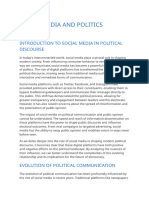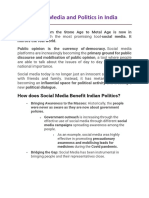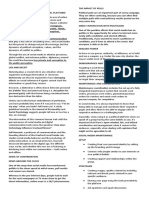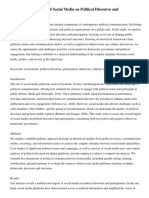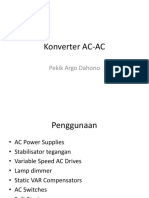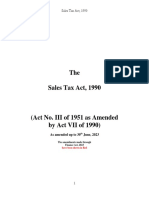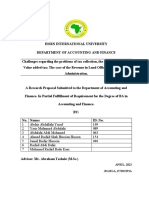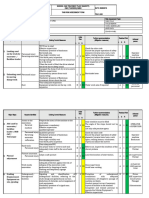0% found this document useful (0 votes)
28 views16 pagesPol Sci
This study investigates the transformative impact of social media on political communication, activism, and election outcomes, highlighting both its potential to enhance democratic engagement and its role in spreading misinformation and polarization. It emphasizes the dual nature of social media as a tool for grassroots movements while also posing challenges such as data privacy issues and algorithm-driven echo chambers. The research aims to explore the implications of emerging platforms, the influence of algorithms, and the need for regulatory frameworks to mitigate risks associated with social media in politics.
Uploaded by
2483069Copyright
© © All Rights Reserved
We take content rights seriously. If you suspect this is your content, claim it here.
Available Formats
Download as DOCX, PDF, TXT or read online on Scribd
0% found this document useful (0 votes)
28 views16 pagesPol Sci
This study investigates the transformative impact of social media on political communication, activism, and election outcomes, highlighting both its potential to enhance democratic engagement and its role in spreading misinformation and polarization. It emphasizes the dual nature of social media as a tool for grassroots movements while also posing challenges such as data privacy issues and algorithm-driven echo chambers. The research aims to explore the implications of emerging platforms, the influence of algorithms, and the need for regulatory frameworks to mitigate risks associated with social media in politics.
Uploaded by
2483069Copyright
© © All Rights Reserved
We take content rights seriously. If you suspect this is your content, claim it here.
Available Formats
Download as DOCX, PDF, TXT or read online on Scribd
/ 16


